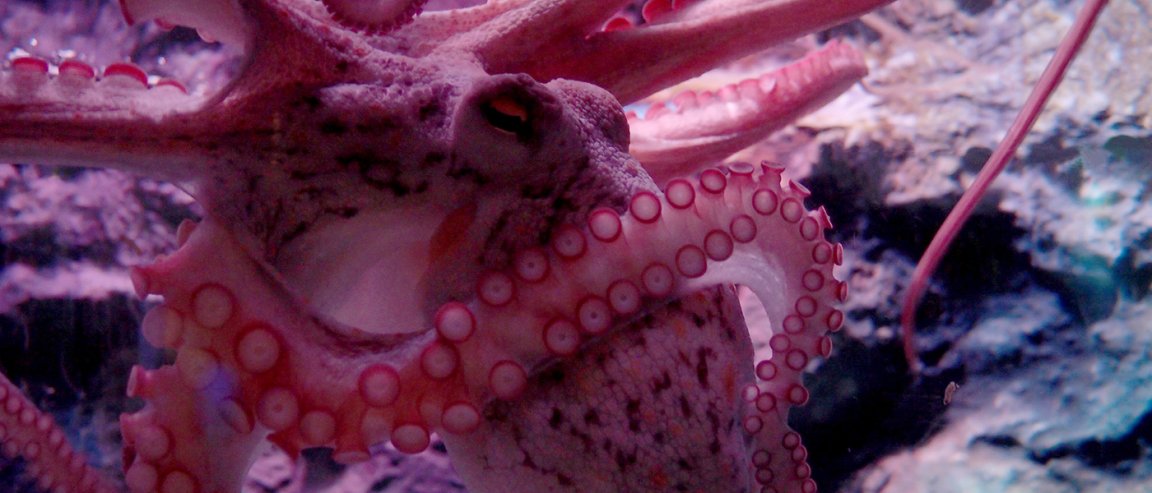
Gene Editing
A team of scientists led by Joshua Rosenthal at the Marine Biological Laboratory and Noa Liscovitch-Braur and Eli Eisenberg at Tel Aviv University have discovered that octopuses and squid are capable of a type of genetic alteration called RNA editing. The process is rare among other species, leading scientists to believe that the cephalopods have evolved to follow a special kind of gene recoding.
Normally, living creatures use the information contained in DNA to make proteins, and RNA is the go-between, simply transmitting the message in the DNA. More than 60 percent of RNA transcripts in squid are recoded by editing, and similar levels of RNA editing were identified in other cephalopod species, including two octopuses and a cuttlefish. This changes the message that gets sent out, which in turn changes the proteins that get produced. In comparison, other species like fruit flies and humans experience recoding events only a fraction of one percent of the time. But exactly how the gene editing mechanics work is a mystery.
“When do they turn it on, and under what environmental influences? It could be something as simple as temperature changes or as complicated as experience, a form of memory,” says Rosenthal.
Traditional DNA
The inherent characteristics of this species have prompted scientists to compare cephalopods to aliens, given their camouflage capability, blue blood, and ability to see polarized light. Their ability to manipulate their RNA demonstrates the importance of editing, which demonstrates how their species have possibly been forgoing standard evolution, sacrificing the ability to quickly evolve in order to develop their impressive brainpower.
[infographic postid=”6724″][/infographic]
Technically, an animal could use RNA editing to change the nature of its proteins without completely altering the underlying DNA instructions. This makes the cephalopods’ ability to do it a very interesting phenomenon, but it’s unclear as to why the species requires this much RNA editing. Many of the edited proteins were found in the animals’ brains, which is why scientists think the editing and their brainpower could be linked.
All of this, however, is still a hypothesis. Further research is needed to determine exactly how the editing mechanism works. Researchers hope to discover the role that RNA editing plays in the development of these species, and whether deeper insight into the process could ultimately lead to treatments for diseases like cystic fibrosis.